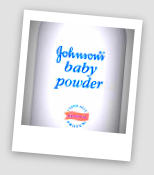Johnson & Johnson (J&J), the world’s largest pharmaceutical and medical device maker has been exposed to hundred of thousands personal injury and defective product liability lawsuits over the past 10 years.

Plaintiffs have alleged in thousands of lawsuits that its DePuy line of ASR and Pinnacle metal on metal hip implants cause metallosis and fail prematurely requiring re-do surgery, that its line of Duragesic Pain fentanyl patches causes overdoses and death, that its Ethicon line of vaginal mesh and bladder sling inserts cause perforation and chronic pain, that its Risperdal antipsychotic medication causes gynecomastia (male breast growth) in young boys, that its Tylenol causes liver failure, that its Ethicon Morcellator device spreads uterine cancer through out the abdomen and pelvis during laparoscopic hysterectomy and uncontrollable bleeding from its blood thinner Xarelto.
Johnson & Johnson also faced charges of illegal marketing. In 2013, J&J paid $2.2 billion to the federal government and several states for illegal promotion of drugs, including Risperdal and Invega.
Now J&J is facing claims that its world famous baby powder causes ovarian cancer in women.
J&J is under fire by the family of Jackie Fox, who died of ovarian cancer last year at the age of 62 after enduring many rounds of chemotherapy. In a Saint Louis Missouri state court, Fox alleges that talc in J&J’s products caused her disease and the company knew the risk and failed to warn customers. The St. Louis talc ovarian cancer trial is expected to last two to three weeks. There are about 1,200 talc ovarian cancer lawsuits pending in state and federal courts nationwide.
What is Talcum Powder?
Talcum powder is derived from talc, which is a hydrated magnesium silicate. Talc is most popular as Baby Powder, which used to prevent or treat rashes in babies. Also, many women use talc powder for personal hygiene and cosmetics. Many different products are marketed as body powder, such as “Shower to Shower” and other brand names.
Talc powder is generally recognized as safe, but it may cause serious and life-threatening ovarian cancer concerns when used for feminine hygiene.
Did J&J Hide Ovarian Cancer Risks from Women?
According to plaintiffs, J&J’s internal documents will show it knew of studies connecting talc use and ovarian cancer but continued to market it, particularly to African-American and Hispanic women.
J&J claims that Fox’s family cannot prove talc caused the ovarian cancer and that a warning label wouldn’t have stopped her from using it. The Fox family isn’t claiming that talc was the sole cause of her cancer, but that it was a contributing factor. The plaintiff doesn’t have to prove that talc is the only cause for J&J to be held liable.
J&J Talcum Powder
J&J marketed its Shower to Shower brand talc for feminine hygiene. One 1988 ad promised “just a sprinkle a day keeps odor away.” Fox said in a deposition about six months before she died that she was “raised on” Johnson’s Baby Powder and Shower to Shower talc and used it every morning until she was diagnosed with cancer.
Medical Studies Link Talc to Cancer
In the 1970s researchers began linking talc to ovarian cancer. According to Daniel Cramer, a doctor at Boston’s Brigham and Women’s Hospital, he noted that in 1982, women who reported genital-talc use faced a 92 percent increase in the risk of developing ovarian cancer.
Several studies and reports have confirmed that talc applied to a woman’s genital area may travel through the vagina and into the uterus, fallopian tubes and ovaries.
In June 2013, according to a study in the medical journal Cancer Prevention Research found that women who used talcum body powder as a feminine hygiene produce may face a 20% to 30% greater risk of ovarian cancer compared to those who do not apply talc.
Cramer, in a new study in the journal Epidemiology, found that talc was associated with a 33 percent rise in the risk of ovarian cancer, which increased the longer it was used.
The American Cancer Society advised in 1999 that women use corn starch-based products in the genital area.
The case is Fox v. Johnson & Johnson, Cause No. 1422-CC09012-01, Division No. 10, Missouri Circuit Court, Twenty Second Judicial District (St. Louis).





